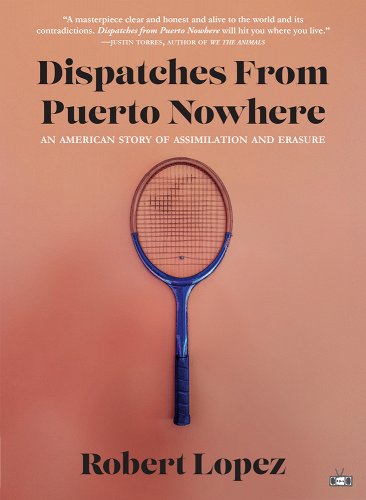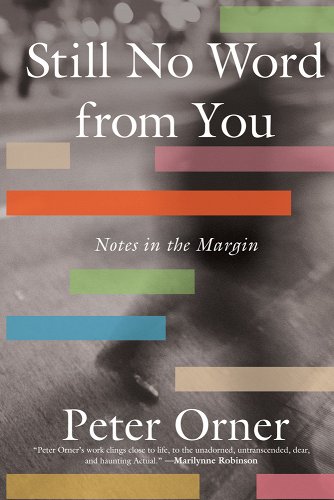[ad_1]
The review is late. I’m stalling. Every attempt is a false start, a throat clearing. I stare out the window, nuzzle the dog, dispel a crust of sleep from his eye. Soon, my children will leave home and I’ll have no one to over-parent but the dog. Already I’m bereft. I get up to pillage the pantry, but there are only Goldfish. Not for long. I demolish the Goldish. For months, I’ve been feasting on these books, and these books only, reading, rereading, dog-earing, asterisking, underlining. One leads to the other and back again, as if the two disparate projects were in close conversation.
What I want to say about these works is simple: read them. Here are two esteemed authors I came to years ago for the inimitable magic they wield on the line. Both have been called writers’ writers, whatever that means. Their unassuming genius is available to anyone. Study their sentences. I cannot overstate how much their ways of seeing, their gifts of precision and compression have taught me about the short story form. Now, both have applied their singular voices and infinite wisdom to nonfiction: to bits of memoir, notes, dispatches, speculation, in an effort to—what? Eke out meaning? Forge an identity? Anchor a selfhood? Connect the dots? Make sense of this so-called life? Life is absurd.
Who are we, anyway, but intimately unknowable?
Which never stopped a person from trying.
“I’m hoarding scraps,” Orner writes.
Lopez echoes, “What’s less than half a fragment? What’s part of a shard?”
A methodology as good as any.
Both Dispatches from Puerto Nowhere and Still No Word from You take a kaleidoscopic approach to memoir, using short sections that defy linearity. Both grapple with family history, with lore and invention, the ravages of assimilation, the fleeting nature of existence, of time. Both weave flickers of the past with current passions: tennis, for Lopez, and reading, for Orner, with books and fellow court players forging a sort of chosen family. Both honor the space around the page as a place of landing, a hand reaching out to the reader to enter and engage.
“Here’s a memory,” Lopez says, a rarity for him, whose upbringing was all but stripped of his Puerto Rican heritage, leaving him to fill in the blanks with imaginings of his grandfather in Mayaguez:
“Sixto turns 12 tomorrow and his mother is making pernil and mofongo and arroz con gandules and for dessert there will be sliced pineapple.”
Orner, on the other hand, has been drawing from the family well for so long that he fears he’s “running out of stories.” But the author of nine books knows better than anyone that we write our obsessions, returning, time and again, to the moments and memories that continue to puzzle, prickle, challenge. Is it not the act of grappling that makes us? “It isn’t true that we write stuff out of us,” he admits.
Both authors are byproducts of assimilation. Orner’s father hammered into him the Chicago memory of being called “a kike or a yid or a dirty Jew,” but does so almost proudly, as if this were the price to pay for some golden ticket to the American dream. “Some stories don’t get lost, they get repeated into oblivion. I get it, Dad. Persecution is initiation.”
Meanwhile, Lopez wonders if his own father was ever called a “spic” as he’d been called on the playgrounds of Long Island. Questions never asked, topics never broached, that’s how desperate the Lopez family was to blend. “So, sure, we assimilated and it was successful, but here I am missing an arm.”
Like Lopez and Orner, I am of a certain age. There’s plenty in the rearview mirror. When Lopez recalls building forts with his snow-suited sister in suburbia, I remember how the sledding hill once seemed so big. The sludgy ravines in which Orner used to run with the neighborhood kids transport me to the local creek where I’d hide in a summer night game of Kick the Can.
Because this is what they do, these books. Invite connection, immersion. Hence my resistance to any formal review: Too often they become a stand-in for actual reading. A person scans a summary, decides they have enough to fake at a cocktail party. So I’m refusing easy encapsulation. I do not want you to miss out. Theirs are books sprung from memory, however fractured and sparse. To read them is to tap your own.
The smell of Lopez’s grandparents’ tenement in Starrett City evokes my own grandparents’ apartment in the Bronx, their insistence on heavily accented English as opposed to German, even though my Opi never learned to write it.
For Lopez, it was rice and beans. For me, liverwurst and red cabbage.
“I like knowing about other casualties of assimilation,” Lopez writes. Like Lopez—and Orner—my father was born in “the golden age of assimilation.” Like Lopez, my grandparents rarely spoke of the mother country. Unlike Lopez, elliptical details emerged anyway. Still, reparations checks arrived in the mail without so much as a word.
Childhood narcissism? Maybe. Trauma? Undoubtedly. But they, too, subscribed to the propagated myth: now that they’d made it here, they weren’t going back there. They were Americans now.
Orner underscores the irony, “We understood that we’d been born into an independent landscape with its own history, stolen as it was from slaughtered Potawatomie.”
Retrospection is almost always accompanied by ache. Lopez reflects, “Of course, now I wish I’d stayed behind. Asked [my grandfather] questions about Puerto Rico and his life there, when and why he immigrated to Brooklyn, where and how he met my grandmother. […] I can think of a million questions now. I might’ve been able to save my family had I done this.”
Because Lopez, who is not a parent, nor chooses to become a parent, feels the imminent death of his name, the acute loss of the lineage he never knew, an identity obliterated, all that attendant grief.

How to resurrect a self from the ashes of family history? When there is so little to go on? If you are a storyteller like Lopez, you tell stories. You manifest ghosts. Some of the most vibrant of his dispatches are fabulist flashes of his grandfather, Sixto, a gifted musician, busking on the streets in Mayaguez in 1918, scraping together enough for a hot, meaty empanadilla in the afternoon sun.
“The dead speak more freely than the living,” Orner muses. He may be talking about the narrator in Juan Rulfo’s novel, Pedro Paramo, but it feels like a whisper in Lopez’s ear.
Orner, too, wrestles with the question of how to account for a life. His book of 107 untitled short pieces is broken into the course of a day, each chapter resonating loosely in juxtaposition and accrual. Orner dwells so deeply in the world of books, at one point, he’s accused of missing the pressing moment. And yet. A couch in a Terrance Hayes poem carries him to his house in Cincinnati with his ex-wife, their couch in the kitchen, the Italian spot they frequented, local race riots over police killings of unarmed black men, then back to the poem, “To Float in the Space in Between,” and its meditative movement on Etheridge Knight. For therein lies a blueprint: “[Hayes’s] method seems to me the only honest way of trying to construct an actual life on the page. A gathering of fragments. Of the stories that get told about us. Of the stories we told. Unordered, like our thoughts on any given day we lived.”
When Orner takes us through Bernadette Mayer’s Midwinter Day, I become a college poetry student all over again, encountering the electricity of “First turn to me…” for the very first time.
And when Lopez introduces us to the diverse members of his tennis posse, I picture my skinny-kneed self, eating Cheerios as my father played in his Saturday morning game. The sound of the hopper dragging onto the court afterward, the balls he’d toss at me to pivot, swing.
And later, the scraggly-haired tennis coach who followed the Grateful Dead in a battered van and sat too close to the third singles player on an away game bus, so close she quit, and then, by senior year, we all did.
Lopez writes, “There is nothing like running around and smacking the hell out of a ball. It’s the best way I know to kill time.”
What is time? Here are writers without use for chronology. Chronology is merely a marching reminder of mortality. Otherwise, Lopez and Orner toggle between past and present, between present, past, and for Lopez, a speculative past. Structurally, their books embody the notion, put forth by Orner, that “there’s no greater fantasy on the face of the earth than the linearity of time. Time only circles.”
About Past-Continuous, the novel by Yaakov Shabtai, Orner writes, “what’s happened has happened and yet, always, it will keep happening.”
Which may be the only way to be in this world: with all our fleeting moments brushing up against us at all times. The immeasurable grief, yes, but also that love, and the wet-eyed levity. Have I mentioned the pulse of humor running through these books?
Orner devours so many pot cookies at a child’s birthday party he starts to hallucinate.
“I finally understood it now, how the past and the present, multiple pasts and maybe there’s more than one present, too, and none of it linear, all of it played in a constant loop, everything that’s ever happened, every day, every hour replayed, if it wasn’t for my heart imploding—”
A stoned thought, maybe. Reminiscent of the time I ate a bag of mushrooms on cold pizza at my friend Amy’s house then puked my brains out in her parents’ bathroom before scribbling down a ridiculous string of epiphanies I couldn’t decipher in the morning. My god, I was the same age as my daughter is now.
Which cues Lopez’s lament, “We all become a story for someone else to tell until no one is left to tell it firsthand, if it’s told at all.”
Because life, of course, is gone in a blink. And yet, here we are now. Isn’t that something?

NONFICTION
Dispatches from Puerto Nowhere: An American Story of Assimilation and Erasure
By Robert Lopez
Two Dollar Radio
Published March 14, 2023

NONFICTION
Still No Word from You: Notes in the Margin
By Peter Orner
Catapult
Published October 11, 2022

[ad_2]
Source link

